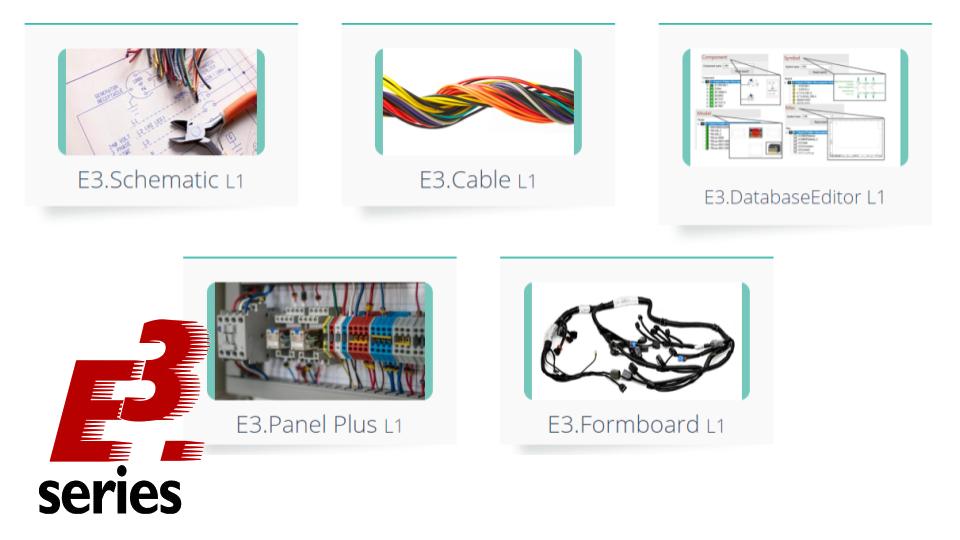
Contents of this Article
- Technical Complexity
- Rules and Regulations
- Correct Sizing
- Cable Management
- Electromagnetic Interference
- Testing and Commissioning
- Incomplete Documentation
- Coordenação de Equipe
- Deadlines and Budget
- Training and Knowledge
- Integration with Systems
Technical Complexity
Electrical panels typically involve a variety of components such as circuit breakers, relays, controllers, cables, terminals, and protective devices. Integrating all of these elements properly can be complex, especially on large-scale projects.
Teste AGORA a ferramenta E-CAE E3.series líder de segmento no mundo com cursos de capacitação técnica!
Clique no banner abaixo
Rules and Regulations
Compliance with electrical safety standards, such as those established by the Brazilian Association of Technical Standards (ABNT) and other international organizations, is essential. Interpreting and applying these standards can be challenging, especially considering that they may be updated periodically.
Correct Sizing
Sizing components correctly is crucial to panel performance and security. Choosing circuit breakers, cables and other devices with inadequate capacity can lead to problems such as overloads, short circuits and excessive heating.
Cable Management
The layout and organization of cables within the panel must be well planned to avoid interference, unwanted crossings and maintenance difficulties.
Electromagnetic Interference
Electrical panels can be sensitive to electromagnetic interference that can affect the correct functioning of electronic components. Mitigation measures such as proper wire placement and adequate grounding are essential.
Testing and Commissioning
Verifying that all components are working as expected and performing functionality tests can be time-consuming and require significant resources.
Incomplete Documentation
Inadequate project documentation can lead to difficulties in panel maintenance, repair and future expansion. It is important to create clear diagrams, parts lists and operating manuals. The E3.panel module allows you to overcome this problem.
Team Coordination
Electrical panel projects often involve collaboration between different specialists, such as electrical engineers, automation engineers and field technicians. Ensuring effective communication and coordinating the activities of different teams is essential.
Deadlines and Budget
Deadline pressures and budget limitations can affect project quality, leading to quick fixes that can compromise panel efficiency and security.
Training and Knowledge
The team responsible for designing, assembling and maintaining the panel needs to be well trained and up to date with the latest technologies and practices. Lack of knowledge can lead to errors and operational problems.
Security
Safety is paramount when dealing with electricity. Ensuring that panels are properly insulated, with adequate protection against electrical shocks and fires, is essential to protect operators and the environment.
Integration with Systems
Electrical panels are often part of larger systems, such as industrial automation. Ensuring seamless integration with these systems can be challenging.

Addressing these difficulties requires careful planning, technical expertise, effective collaboration, and attention to detail to ensure your electrical panel design is safe, functional, and reliable.
Take the E3.series Trial according to your demand using the button below!











